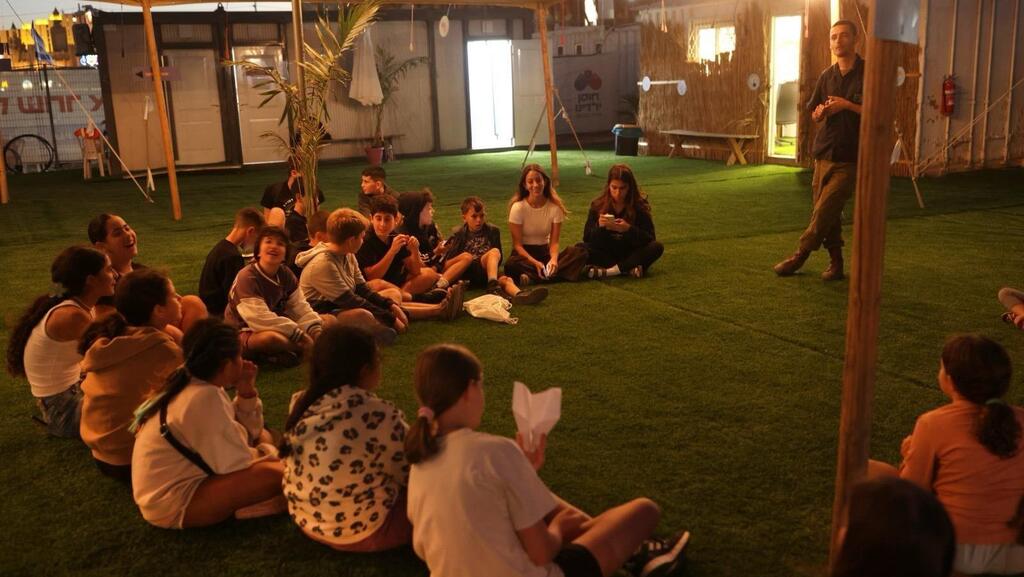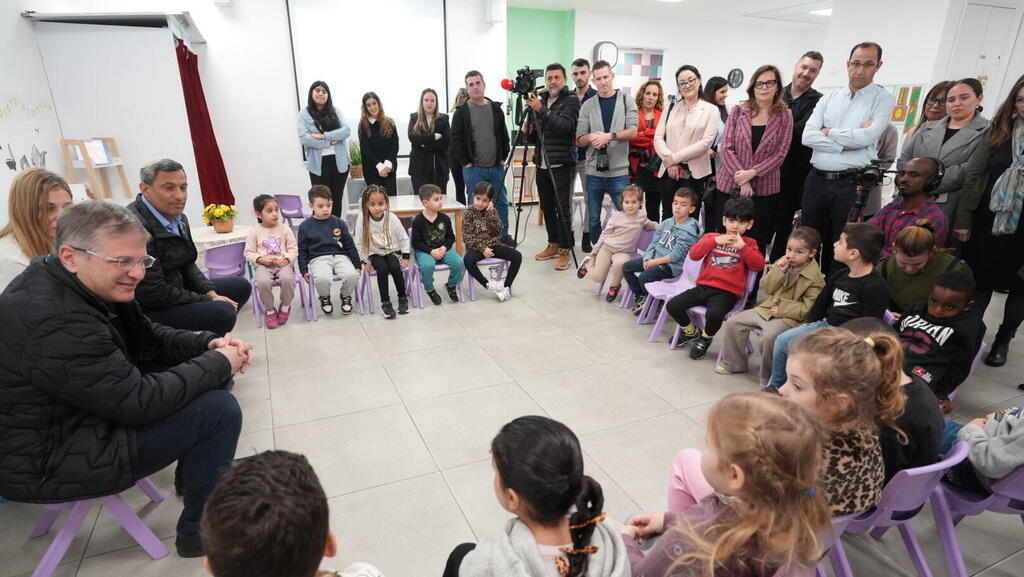Getting your Trinity Audio player ready...
Six months have passed since the October 7 terror attack, and hope is returning to the Israeli town of Sderot. Schools have reopened, and most of the evacuated families have returned home.
It has been the most challenging experience they have known - and it was especially difficult for the town’s children and teens. Nearly half were forced to spend months in cramped hotel rooms near the Dead Sea and Eilat.
The disruption of their daily routines left its mark. Early surveys revealed that one in five children became reclusive, while some teenagers wandered the tourist promenades at night, at times drinking and smoking. The trauma of the attack was replaced by the trauma of displacement.
It was for these kids - along with thousands of others who were forced out of their homes in the north and around Gaza because of the war - that we launched the “Resilience of our Children” compounds. The two facilities offered psychological help by certified therapists and daily extracurricular activities to thousands of young participants. The results were mind-blowing: the number of children who shut themselves down-dropped by 25 percent, and their involvement in community life and activities skyrocketed.
A few days ago, we saw the last of the southern kids back to their old schools, and both compounds have been shut down. It was both a bittersweet occasion, and many of the volunteers and workers shed tears. But we also knew it was only the first step in the process of recovery from the collective trauma we all suffered. Many of the returning families are experiencing new difficulties. The memories of the long hours they shut themselves at home while terrorists roamed the streets came back to haunt them. People have trouble sleeping, going out, or staying home alone. Families fall apart.
Once again, it’s the children who suffer the most. Resilience for Our Children now launched the second stage of the project, aimed at supporting the returning communities. One pilot is the new extension to the Gvulot School, located some 10 kilometers from the Gaza border. The new resilience compound, made out of 10 school tents and two therapy rooms, will allow the school to cut down the number of children in fourth, fifth, and sixth grade from 35 to 25, and allow teachers to reach and support each child. Resilience for Our Children also supports the local municipalities in locating and hiring experienced therapists.
Yet philanthropy, volunteer work, and civil society can only get you so far. Ultimately, it is up to the state, which has the capacity and resources, to offer these services, so vital for the rebuilding of communities. If we fail to set them up, we will see the departure of families who can afford it, and the further crumbling of those who stay behind. We need more teachers, social workers, and therapists; and we must invest in after-school activities and new facilities. A key lesson from the compounds we operated near the hotel sites involves the adoption of a proactive approach, which approaches the children and invites them in, rather than wait for them to arrive.
The Israeli civil society is determined to invest time, effort, and funds in the children affected by the October 7 terror attack. Yet without a major commitment of resources by the government for the next several years, we are at risk of creating a “lost generation.”
So far, the state’s track record in supporting the communities affected by the war has been far less than satisfying, and the sight of people returning to their homes might serve as an excuse to do even less. We can’t allow ourselves to fall into this trap. Rebuilding life is a long, difficult process, and the hard work only begins now.
Ronny Douek is an Israeli social entrepreneur, founder of "Zionism 2000" and "Sheatufim" associations, and leader of the "Resilience for Our Children" initiative




